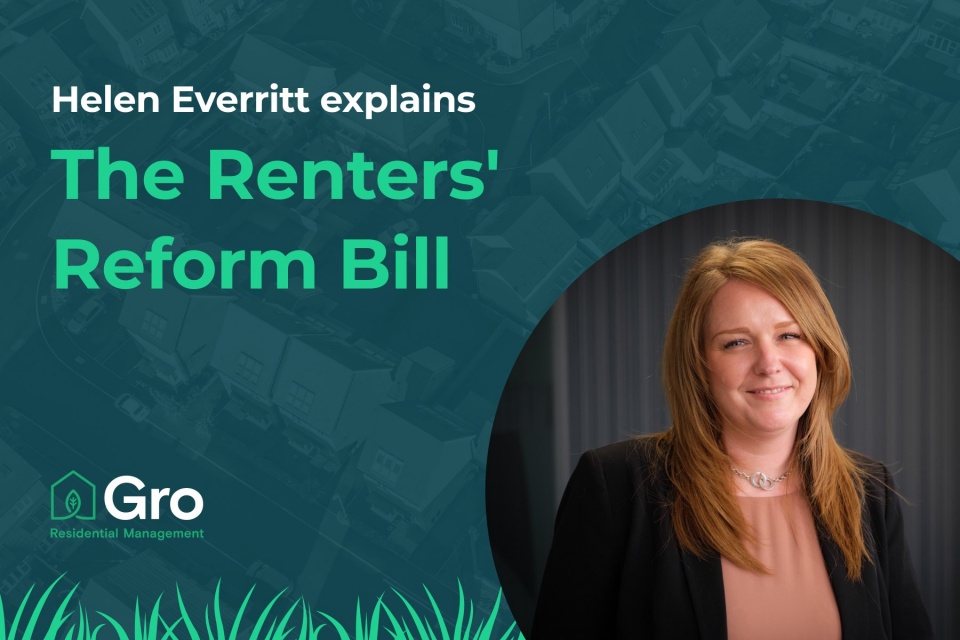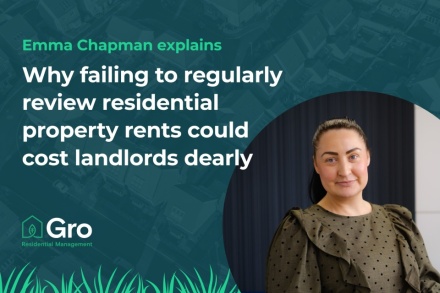Landlords have nothing to fear from new Renters' Reform Bill if properties - and their tenants - are well managed and supported

By Helen Everritt, Manager of Gro Residential Management
At Gro Residential Management we pride ourselves on the standard of residential properties we manage and let on behalf of landlords, ensuring we always provide high-quality accommodation across Hull and the East Riding.
And it is for that reason that we believe the new Renters’ Reform Bill, which was recently introduced to parliament, will achieve its goal of creating a safer, fairer and higher-quality rental market.
There has been something of a mixed response amongst landlords, which was perhaps to be expected.
New limits on their ability to evict, rent increases now requiring two months’ notice, and no longer having the right to say their properties are not available to people on benefits, or who have pets, are significant changes to adapt to.
However, for those who have effective property management processes in place, with a long-term view in terms of strategy, maintenance, tenant relationship, and most importantly return on investment, these changes should not pose major problems.
‘Minimal impact for responsible landlords’
Helen Everritt, Manager of Gro Residential Management, said: “There has been a lot of controversy and apprehension amongst landlords around these new laws being introduced, but we are certainly advising the landlords whose property portfolios we manage that it will have minimal impact on them. For responsible landlords, it should not be any cause of great concern.
“Headlines have centred on landlords no longer being able to use Section 21 eviction notices to reclaim their properties within two months, which are often referred to as ‘no fault evictions’ given landlords have not had to establish fault to issue them in the past.
“However, with a properly planned and managed residential lettings portfolio, landlords should not be finding themselves in such a position where they need to evict at speed. It is very rare for a landlord to choose to evict tenants who pay rent without issue every month. That is what a landlord wants.
“Under these new laws, landlords are actually being given greater powers to evict anti-social tenants, and tenants who consistently miss rental payments, which is when they really need the power to be able to act.
“Again though, with clear vetting procedures for tenants, and sufficient background checks, issues with tenants’ behaviour can be avoided in most cases, and it is not a common problem for any landlords we manage properties on behalf of.”
The Bill has confirmed the Government's ambition to simplify existing tenancy structures, by moving all Assured Shorthold Tenancies onto a single system of periodic tenancies.
This means they will no longer have a specified end date, rolling on every month, under an agreement that tenants must give two months’ notice when they intend to leave.
Again, Miss Everritt says she doesn’t see an issue arising for landlords supported by Gro Residential Management.
“We can’t see relationships changing between the landlords we represent and their tenants. What we expect to see, across the market, is landlords having to adopt the procedures we have long followed at Gro Residential Management.
“That is centered on identifying quality properties to invest in, ensuring they are maintained to high standards, vetting tenants effectively, ensuring rents reflect the true market value and establishing a relationship of trust and respect between landlords and tenants.”





